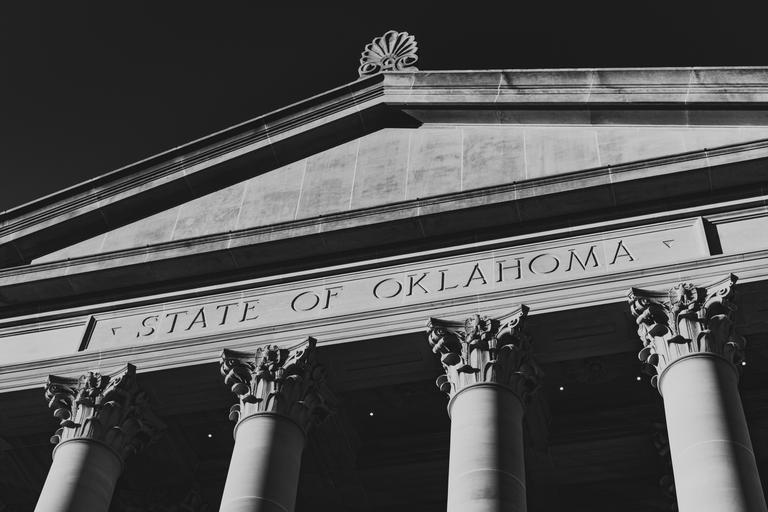
Law & Principles
Ray Carter | February 25, 2021
Professional licensing reforms advance
Ray Carter
House lawmakers have advanced two similar bills supporters say will reduce the barriers to entry in Oklahoma’s workforce.
House Bill 1981, by Rep. Mark Lepak, creates the “Universal State and Military Equivalence Licensing Recognition Act.” Under the legislation, an individual who moves to Oklahoma from another state will have his or her professional license recognized as valid in Oklahoma without having to separately go through Oklahoma’s licensure process.
Those who benefit from the legislation would be required to have at least one year’s experience in a profession, have no discipline actions imposed or pending in another state, and must establish residency in Oklahoma.
“This is simply saying if you’re recognized in that state, had met their requirements, we’re not going to make you repeat all that here,” said Lepak, R-Claremore.
Rep. Meloyde Blancett, D-Tulsa, said she had been contacted by several industry organizations that oppose HB 1981, including associations for architects, construction industry officials, the alarm industry, and psychologists.
“It seems like a lot of business entities and people in business are opposed to the language in this bill,” Blancett said.
Lepak said several states have passed similar laws, including Arizona, Montana, Pennsylvania, Missouri, Utah, Iowa, and Idaho, while Ohio, Louisiana, Indiana, and Mississippi have similar laws that apply specifically to military spouses.
Lepak said Arizona, which has experienced strong economic and population growth in recent years, has recognized around 2,700 out-of-state licenses under its licensing reform.
Some supporters suggested the bill could help address labor shortfalls in parts of Oklahoma.
“Personally, I feel like this bill is going to help increase licensed services in underserved areas,” said Rep. Tammy Townley, R-Ardmore.
She noted professionals in border counties often get licensed in Texas, rather than Oklahoma, because of greater work opportunities on the south side of the Red River. If those licenses are recognized in Oklahoma, it could bump the supply of professionals available to serve Oklahomans in those counties.
Lepak said Oklahoma could find itself at an economic disadvantage if it does not adopt licensing reform.
“More and more states are hearing this legislation—and are passing it,” Lepak said. “So pretty soon, if we’re not careful, we’ll be surrounded by states that are saying, ‘Come on guys,” and it will be another drain issue we’re facing.”
Lepak noted that under his bill Oklahoma’s regulatory entities would still have oversight of individuals authorized to work in Oklahoma with out-of-state licenses and would be able to impose sanctions or revoke licenses if needed.
HB 1981 passed the House Business and Commerce Committee on a 9-2 vote that broke down along party lines with Republican lawmakers in support.
A similar measure was heard the same day in the House Appropriations and Budget Committee.
House Bill 2873, by Rep. Kevin Wallace, R-Wellston, creates the “Universal Licensing Recognition Act.” It also provides “professional and occupational licensing recognition for the issuance of licenses for applicants moving to and residing in Oklahoma.”
Wallace noted a similar measure passed the House last year before being sidelined by the COVID-19 shutdown. He said the measure was one of Gov. Kevin Stitt’s initiatives and that HB 2873 represents “an agreement between all occupation professional licensers.”
HB 2873 passed the House Appropriations and Budget Committee on a 30-0 vote. The two lawmakers who had opposed Lepak’s bill earlier that day—Reps. Blancett and Regina Goodwin, D-Tulsa—both voted for HB 2873.

Ray Carter
Director, Center for Independent Journalism
Ray Carter is the director of OCPA’s Center for Independent Journalism. He has two decades of experience in journalism and communications. He previously served as senior Capitol reporter for The Journal Record, media director for the Oklahoma House of Representatives, and chief editorial writer at The Oklahoman. As a reporter for The Journal Record, Carter received 12 Carl Rogan Awards in four years—including awards for investigative reporting, general news reporting, feature writing, spot news reporting, business reporting, and sports reporting. While at The Oklahoman, he was the recipient of several awards, including first place in the editorial writing category of the Associated Press/Oklahoma News Executives Carl Rogan Memorial News Excellence Competition for an editorial on the history of racism in the Oklahoma legislature.